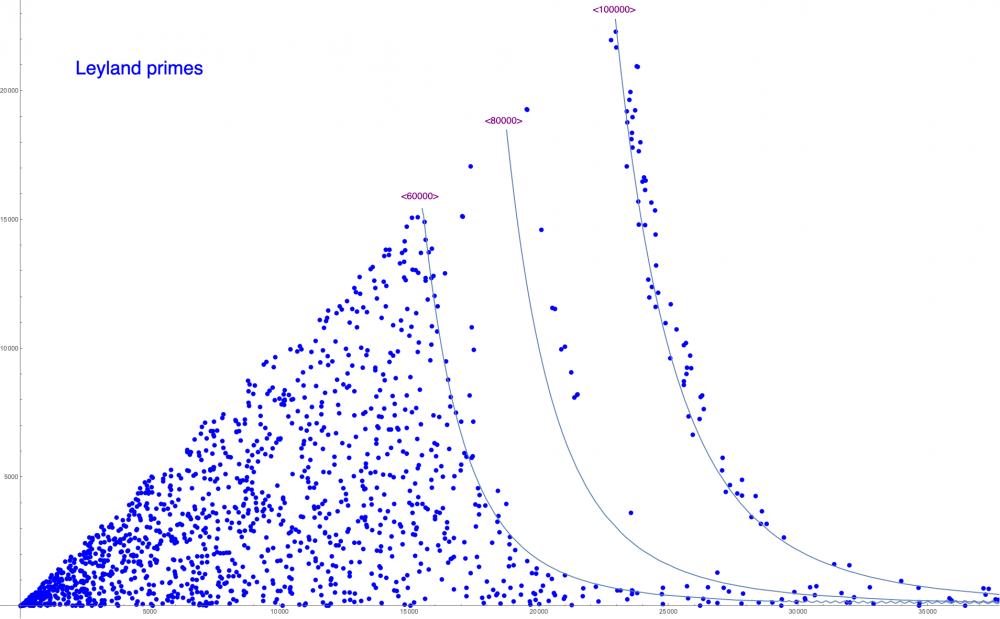| Currently there may be errors shown on top of a page, because of a missing Wiki update (PHP version and extension DPL3). |
| Topics | Help • Register • News • History • How to • Sequences statistics • Template prototypes |
Difference between revisions of "Leyland number"
(added info) |
(Navbox) |
||
| Line 41: | Line 41: | ||
*{{OEIS|l|A253471}} of n^3 + 3^n | *{{OEIS|l|A253471}} of n^3 + 3^n | ||
*[https://www.youtube.com/watch?v=Lsu2dIr_c8k YouTube "Leyland Numbers - Numberphile"] | *[https://www.youtube.com/watch?v=Lsu2dIr_c8k YouTube "Leyland Numbers - Numberphile"] | ||
| − | + | {{Navbox NumberClasses}} | |
| − | |||
[[Category:Leyland prime| ]] | [[Category:Leyland prime| ]] | ||
Revision as of 23:07, 31 July 2019
A Leyland number is a number that can be expressed in the form
A Leyland prime is a Leyland number which is also a prime (see sequence A094133 in OEIS).
The second kind of numbers are of the form
Contents
[hide]History
Data
The data tables contains for every number the x and y values, the number of digits, the Leyland number[1], dates and persons of finding and prooving if available and the program used to proove a prime.
Leyland numbers
There are Expression error: Unrecognized punctuation character ",". numbers: 307 proven primes and 1,507 PRP's
Leyland numbers second kind
Reservation history
Contribution of Leyland numbers
This graph can be found here:
References
External links
- Leyland number
- Main thread of XYYXF Project at MersenneForum
- Current search for Leyland PRP's at MersenneForum
- Prime proofs of Leyland numbers at MersenneForum
- Homepage of Paul Leyland
- Page of Leyland numbers, dated 2006-10-06 by P.Leyland
- Homepage of Andrey Kulsha, dated 2017-01-04
- Yahoo group, 2005 to 2016
- sequence A061119 in OEIS of n^2 + 2^n
- sequence A253471 in OEIS of n^3 + 3^n
- YouTube "Leyland Numbers - Numberphile"
| General numbers |
| Special numbers |
|
| Prime numbers |
|
